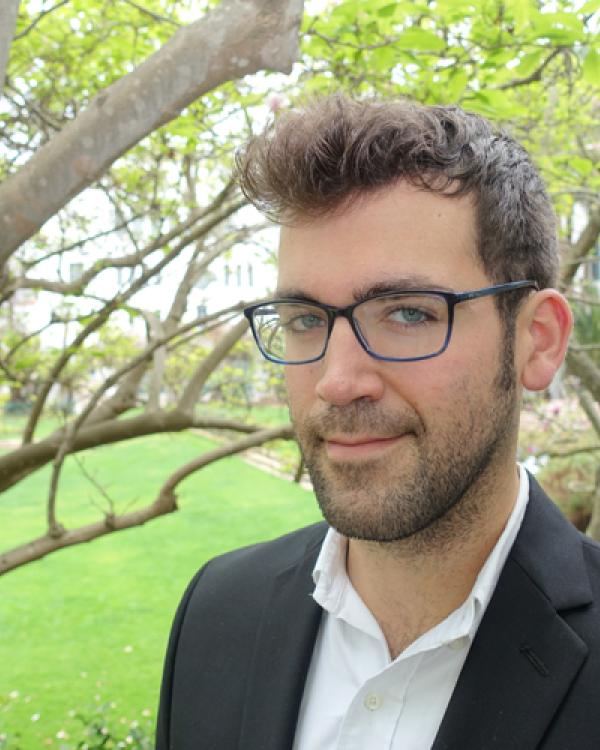
The American Educational Research Association (AERA) has awarded doctoral student Jacob Kirksey from UC Santa Barbara’s Gevirtz School a dissertation grant of $25,000. One of the most prestigious dissertation fellowships in education, it will fund Kirskey’s last year of graduate school in the Department of Education.
As part of the award, Kirksey will attend an AERA Fall Research Conference in Washington, DC in fall 2019. He will have the opportunity to network and interact with the Grants Program Governing Board, senior scholars and researchers, other graduate students who use large-scale datasets in their research, and representatives from key federal agencies such as the National Center for Educational Statistics, the National Science Foundation, and the U.S. Department of Education. Then in spring Kirksey will present his research during an invited poster session at the 2020 AERA Annual Meeting in San Francisco and attend an AERA Capstone Institute following the Annual Meeting.
The title of Kirksey’s project is “From court to classroom: The extent of unexpected consequences of deportation proceedings on science, math, and reading achievement for elementary students from 1998 to 2016.” Schools are on the frontlines of dealing with potential spillover effects from immigration enforcement policies on young children. The little existing research on the effects of immigration enforcement has been limited in scope considering both the samples/populations being studied and the time frame of when deportations were occurring. Moreover, prior research has also been limited in its ability to exploit big data sources with an accurate measure of immigration enforcement to employ a robust cross-sectional, longitudinal empirical design to elicit estimates of the effects of immigration enforcement.
Kirksey’s study will be the first to use a nationally representative sample of elementary school students to examine the associations between deportation proceedings and STEM and non-STEM achievement in elementary grades. This study will also be the first to capitalize on the changing rates of deportations over multiple presidential administrations. While many of the policies and guidelines under the previous administrations have changed, this study could help inform policymakers and stakeholders in education of potential consequences specific student demographics are facing due to policies beyond their control. Understanding how deportations impact children and families is critically important for education researchers, state and local policymakers, grassroots organizers, schools, and educators. Information from this study could be relevant for the design of interventions, school policies and awareness of the challenges for certain student demographics, and future research and theory to understand if schools can serve as protective factors for children entitled to receive an education.
The AERA Dissertation Grant program supports highly competitive dissertation research using rigorous quantitative methods to examine large-scale, education-related data. The aim of the program is to advance fundamental knowledge of relevance to STEM policy, foster significant science using education data, and build research capacity in education and learning. Since 1991, this AERA Program has been vital to both research and training at early career stages. The Grants Program encourages the use of major data sets from multiple and diverse sources. It emphasizes the advanced statistical analysis of data sets from the U.S. Department of Education’s National Center for Education Statistics (NCES), the National Science Foundation (NSF), and other federal agencies.
Kirksey’s dissertation committee members are Michael Gottfried (chair), Hunter Gehlbach, Carolyn Sattin-Bajaj, and Tine Sloan. “My committee members have been instrumental to my success as a young scholar, pushing me to think beyond mainstream and how to shape my research to make a true impact in the field of education policy,” Kirksey says, adding, “They also reviewed this proposal during my dissertation proposal defense.”